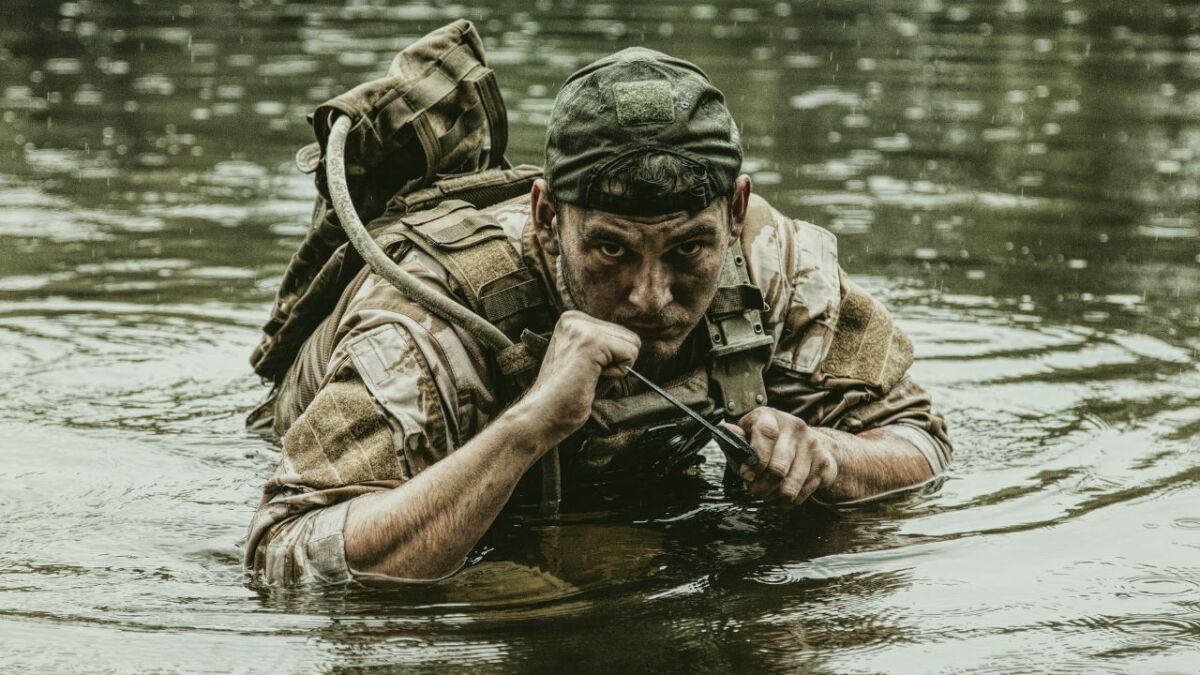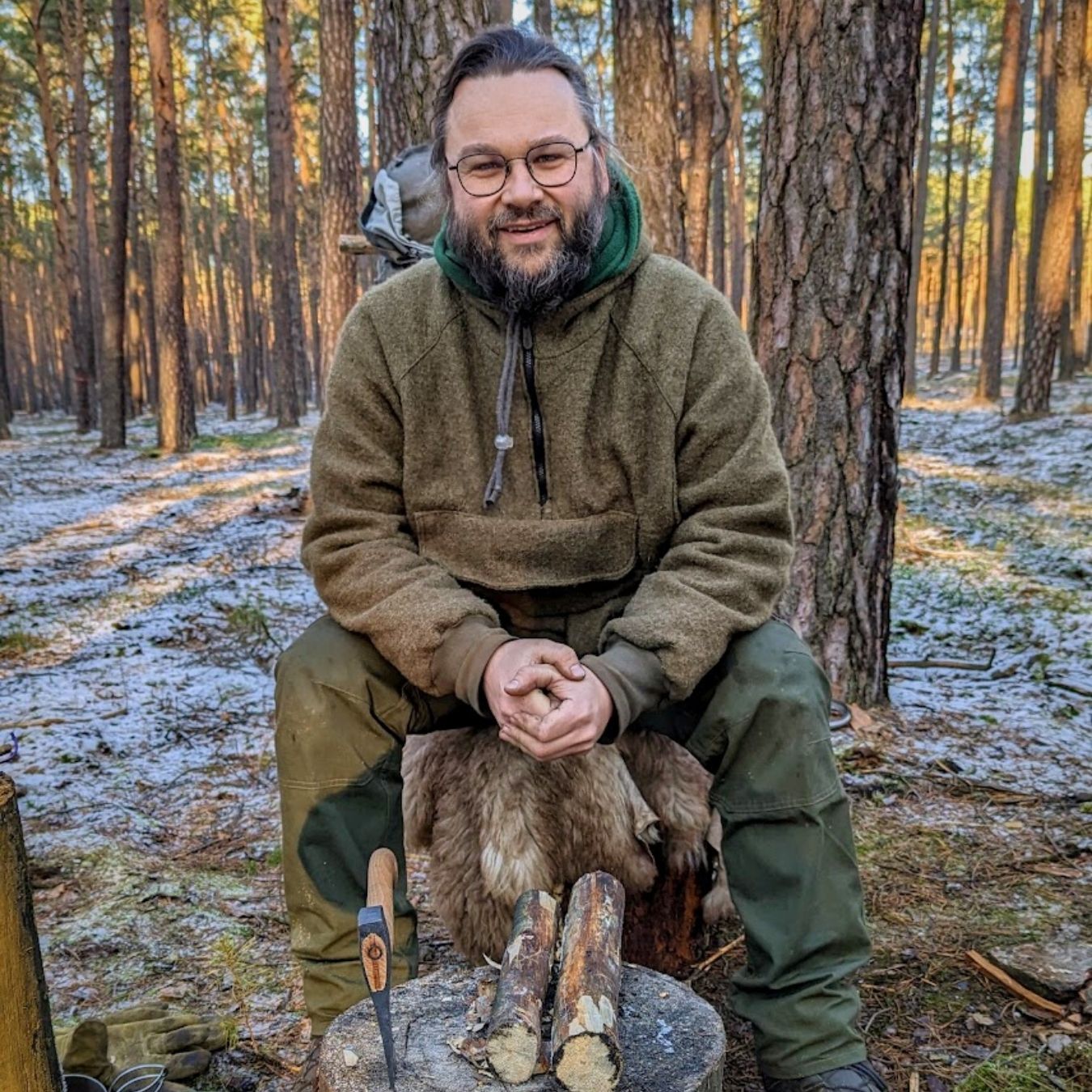
Survival training
Nomen
Meaning
Survival training is the process of acquiring the necessary skills and knowledge to survive in the wilderness or other challenging outdoor environments. It involves learning essential techniques such as shelter building, fire making, navigation, foraging for food and water, and first aid. Survival training is highly relevant in the outdoor world, as it equips individuals with the ability to handle unexpected situations and emergencies. It empowers people to confidently explore and enjoy nature, knowing they have the skills to overcome potential dangers. Whether you're camping, hiking, or simply venturing into the wild, survival training is essential for your safety and well-being.

Examples
„Survival training is essential for anyone who wants to be prepared for outdoor adventures. It teaches you valuable skills like building a shelter, finding food and water, and navigating through the wilderness.“
„During survival training, we learned how to start a fire using only natural materials. It was amazing to see how a simple spark could turn into a roaring flame that provided warmth and cooked our food.“
„One of the most important aspects of survival training is learning how to purify water. We were taught different methods, such as using a water filter or boiling water, to ensure that it is safe to drink.“
„In survival training, we practiced making traps and snares to catch small game for food. It was challenging, but it gave us a sense of self-reliance knowing that we could provide for ourselves in the wild.“
„Survival training also includes first aid skills, such as treating wounds and performing CPR. These skills are crucial in emergency situations where medical help may not be readily available.“
Origin
The word "Survival training" originates from the English language. It is a compound word consisting of "Survival" and "training".
The term "Survival" comes from the Latin word "survivere", which means "to live beyond" or "to outlive". It has its roots in the concept of staying alive in challenging or dangerous situations.
The word "training" comes from the Old French word "trahiner", which means "to drag" or "to draw". It refers to the process of acquiring knowledge, skills, and abilities through practice and instruction.
Survival training has evolved over time as a response to the need for individuals to develop the necessary skills and knowledge to survive in various environments and situations. It has its roots in military training, where soldiers are taught how to survive in combat and hostile environments.
Today, survival training has expanded beyond the military and is practiced by outdoor enthusiasts, adventurers, and individuals who want to be prepared for emergencies or unexpected situations. It encompasses a wide range of skills, including shelter building, fire making, navigation, foraging, first aid, and self-defense.
Survival training is often conducted through hands-on experiences, workshops, courses, and outdoor expeditions. It aims to empower individuals with the knowledge and skills needed to overcome challenges, adapt to different environments, and ultimately, increase their chances of survival.
Synonyms
Survival skills, Wilderness training, Bushcraft education, Outdoor survival, Nature survival, Wilderness survival, Primitive skills, Survival techniques
Antonyms
Urban living, Pampered lifestyle, Dependence, Vulnerability, Weakness, Ignorance, Unpreparedness, Helplessness
Relatives
Wilderness survival, Bushcraft, Outdoor skills, Primitive skills, Survival skills, Emergency preparedness, Self-reliance, Survival techniques
Historical and cultural importance
Survival training has a rich historical and cultural significance that dates back to ancient times. Throughout history, humans have faced various challenges and adversities in their quest for survival, and the need for training and preparation has always been paramount.
In ancient civilizations, survival skills were passed down from generation to generation as a means of ensuring the survival of the community. These skills included hunting, gathering, shelter building, and fire making. The knowledge and techniques developed during this time laid the foundation for modern survival training.
Survival training also played a crucial role during times of war and exploration. Soldiers and explorers were trained in survival skills to endure harsh conditions, navigate unfamiliar terrain, and sustain themselves in hostile environments. This training often included learning how to find food and water, build shelters, and administer basic first aid.
In recent decades, survival training has gained popularity as a recreational activity and a means of self-reliance. With the rise of outdoor adventure sports and the increasing interest in wilderness exploration, many individuals seek out survival training to enhance their skills and knowledge.
Survival training has also become an integral part of military and special forces training programs. Soldiers are trained in various survival techniques to ensure their ability to operate in extreme conditions and hostile environments.
Overall, survival training holds a significant historical and cultural relevance as it encompasses the knowledge and skills necessary to overcome challenges and thrive in the wilderness. It is a testament to human resilience and adaptability, and continues to be valued in both practical and recreational contexts.
More information about the term Survival training
Survival Training: Preparing for the Great Outdoors
Survival training is an essential skill set for anyone who loves the great outdoors. Whether you're an avid hiker, a camping enthusiast, or simply someone who enjoys spending time in nature, knowing how to survive in the wilderness is crucial. In this article, I'll guide you through the basics of survival training and why it's important.
Understanding the Basics
Survival training involves learning a range of skills and techniques that enable you to survive and thrive in the wilderness. It covers various aspects, including shelter building, fire making, water sourcing and purification, foraging for food, navigation, and first aid. By mastering these skills, you'll be better equipped to handle unexpected situations and emergencies that may arise during your outdoor adventures.
Building Shelters
One of the first skills you'll learn in survival training is how to build a shelter. Whether it's a simple lean-to or a more elaborate debris hut, knowing how to create a shelter using natural materials can provide protection from the elements and keep you warm and dry. Understanding different shelter designs and their suitability for different environments is crucial for your survival.
Making Fire
Fire is not only essential for warmth but also for cooking food, purifying water, and signaling for help. Survival training teaches you various fire-making techniques, such as using a fire bow, flint and steel, or a magnifying glass. You'll also learn how to gather and prepare tinder, kindling, and fuel to sustain a fire.
Water Sourcing and Purification
Access to clean water is vital for survival. In survival training, you'll learn how to find and collect water from natural sources such as rivers, streams, and lakes. Additionally, you'll discover different methods to purify water, including boiling, using water filters, and chemical treatments. These skills are essential for preventing dehydration and waterborne illnesses.
Foraging for Food
Knowing how to identify edible plants, insects, and other sources of food in the wild is a valuable skill. Survival training teaches you how to recognize edible plants, find and catch small game, and even set up traps and snares. While foraging for food should always be a last resort, having this knowledge can be life-saving in extreme situations.
Navigation and Orienteering
Getting lost in the wilderness can be a terrifying experience. Survival training equips you with navigation and orienteering skills, including reading maps, using a compass, and understanding natural landmarks. These skills will help you find your way back to safety or reach your intended destination, even in unfamiliar terrain.
First Aid and Emergency Response
Accidents and injuries can happen, even in the wilderness. Survival training includes basic first aid skills, such as treating wounds, managing fractures, and dealing with common outdoor emergencies. Learning how to improvise medical supplies and create makeshift stretchers can be invaluable when professional help is not readily available.
Conclusion
Survival training is not just about learning practical skills; it's about gaining confidence and self-reliance in the great outdoors. By investing time and effort into survival training, you'll be better prepared to handle unexpected situations and enjoy your outdoor adventures with peace of mind. Remember, practice makes perfect, so don't hesitate to put your skills to the test and continue learning and refining your survival techniques.
Back to overview

